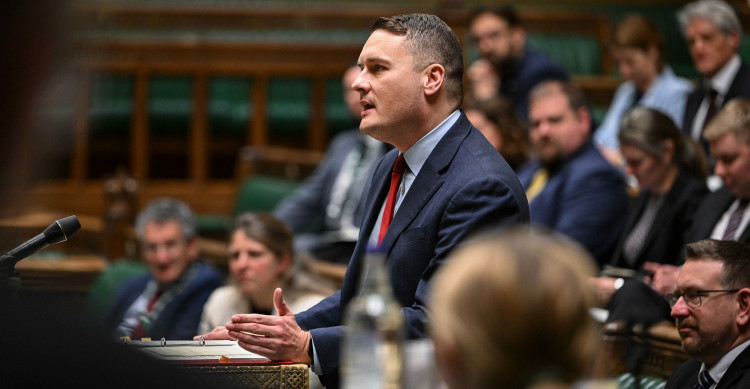“We must tackle head-on the pressures our staff face, while making our extra funding go as far as possible. And as we do so, we must accelerate the redesign of patient care to future-proof the NHS for the decade ahead.”
In summarising the position of the NHS for its upcoming long term health plan, ministers could be forgiven a copy and paste of the intro to the previous long term health plan.
Just five years since publication, its vision – widely welcomed and praised at the time - has been rapidly overtaken by events: a once in a century pandemic, global economic crises and governments averaging an annual change in health secretary.
And so many of the fundamental problems facing the NHS - though by no means always within it – not only went unsolved but stubbornly remained or deteriorated further.
As waiting lists and ambulance response times got worse, so too has the country’s public health and its social care.
This is the ominous backdrop facing Wes Streeting and his team as they prepare to set out their own blueprint for the NHS of the future.
Hanover recently commissioned and analysed a new national survey to shine a light on current public opinion about the shape this future might take.
With so tough a brief for new ministers, and with such a tough past five years, it should be no surprise that this month’s poll shows the public is pessimistic about prospects for positive change.
While those surveyed strongly back ministers’ top priority for the health service – waiting lists – the size of the backlog and an extended period of missed targets have taken their toll on public optimism for the NHS.
Interestingly, the current government appears to enjoy more confidence from younger generations and from men, than it does from older people and from women, in its attempts to tackle backlogs.
Beyond waiting lists, government will be encouraged that the area of disease set to benefit from its own bespoke plan – cancer – is recognised by people in England as a high priority.
A challenge for ministers may come through the fact that mental health is considered as important as cancer.
In times of scarce resources it is mental wellbeing that has too often paid the price for tackling physical disease, and it appears the public wants to avoid that being the case in this round of spending constraints.
And while our poll shows again that the public may think more needs to be spent on the health service, the competition for taxpayer money across Cabinet makes this a big ask.
With trade-offs the inevitable result of battling for resources, Whitehall will note that more people consider the NHS has too many targets, than too few.
In the coming months, as ministers draft their long term plan, they will hope – but perhaps may not expect - that the public’s tolerance for tough choices survives contact with the reality of choosing between services in the NHS.
What’s more, as many people’s primary exposure to the NHS is through a routine operation or an unexpected trip to A&E, it makes sense that alongside waiting lists, emergency department performance is the second big area that people want to see tackled.
If the debate over tackling waiting lists has shown clearly ministers’ determination to seize the moment, the position of urgent care has been far less clear, with a live debate over the right approach to improving safety and quality in emergency departments and ambulances.
And with the current administration deciding to wait for several years for a final plan to tackle social care, it is likely that hospitals will end up having to look after more people for longer, something that is likely to mean over time a worse experience for anyone in need of an ambulance.
One poll is only one snapshot at one moment, but these insights give us a clear sense of the most acute political and operational issues involved in reforming the NHS.
The scale of the challenge, articulated in ministers’ own rhetoric about a ‘broken NHS’, would make it difficult for any government to command total confidence at this point in the political cycle.
Yet Government can already point to an emerging positive story - successive months on waiting list drops and a notable improvement in ambulance response times - that if maintained, would count as real progress.
And if ‘to govern is to choose’, then on the area the government has chosen to focus most resources, as it sets out what’s next for the NHS, the public appears to give ministers their backing.
Our exclusive research on public opinion first appeared in the The Times on 25th April 2025. Read in full, here.

katedarkins-1-1702380482.jpg)





